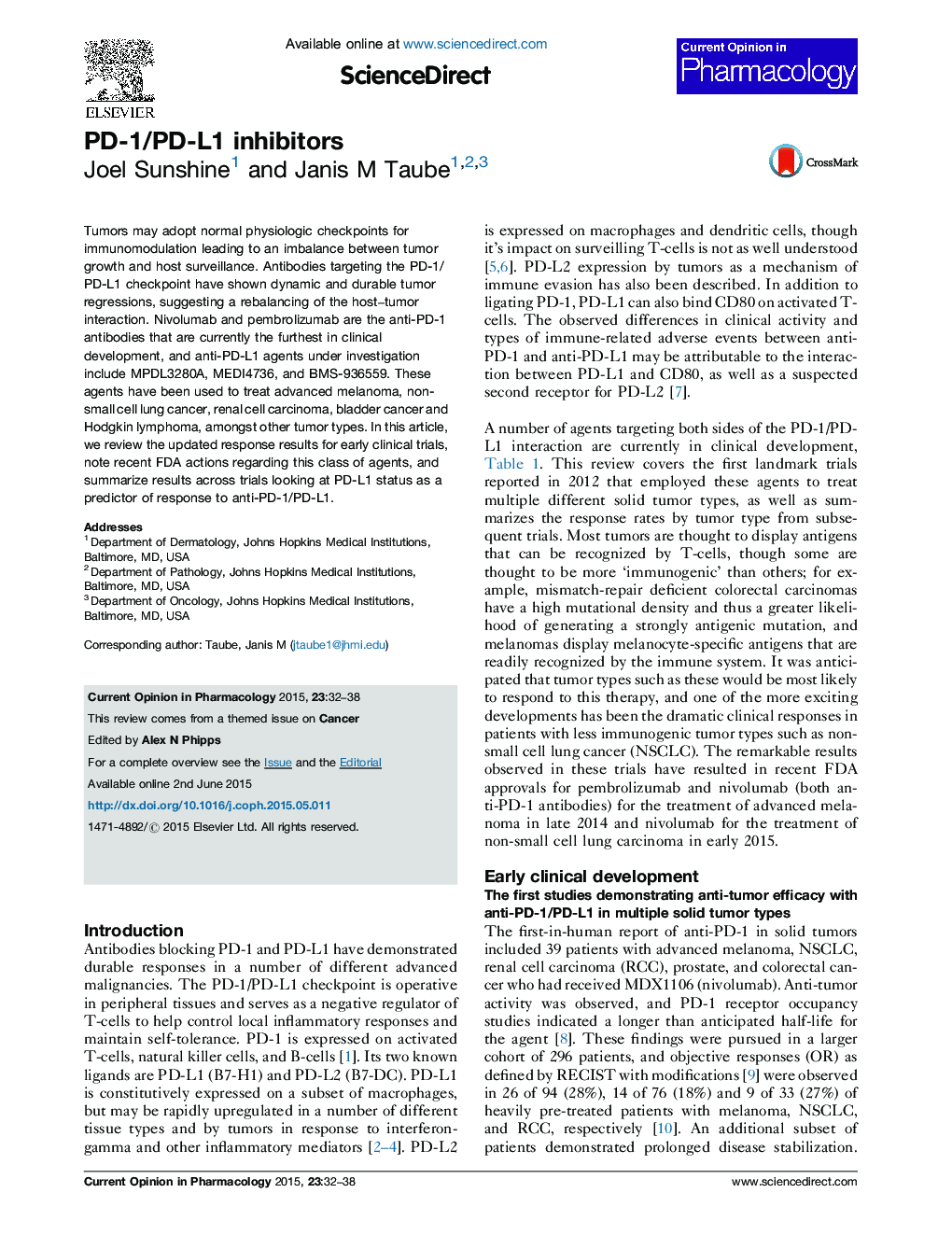| کد مقاله | کد نشریه | سال انتشار | مقاله انگلیسی | نسخه تمام متن |
|---|---|---|---|---|
| 5825968 | 1558125 | 2015 | 7 صفحه PDF | دانلود رایگان |

- Remarkable and durable anti-tumor activity with several anti-PD-1/PD-L1 antibodies.
- FDA approval for anti-PD-1 antibodies for advanced melanoma and NSCLC.
- PD-L1 expression in pre-treatment tumor enriches for response to anti-PD-1/PD-L1.
- Future studies will focus on combining other therapies with anti-PD-1/PD-L1.
Tumors may adopt normal physiologic checkpoints for immunomodulation leading to an imbalance between tumor growth and host surveillance. Antibodies targeting the PD-1/PD-L1 checkpoint have shown dynamic and durable tumor regressions, suggesting a rebalancing of the host-tumor interaction. Nivolumab and pembrolizumab are the anti-PD-1 antibodies that are currently the furthest in clinical development, and anti-PD-L1 agents under investigation include MPDL3280A, MEDI4736, and BMS-936559. These agents have been used to treat advanced melanoma, non-small cell lung cancer, renal cell carcinoma, bladder cancer and Hodgkin lymphoma, amongst other tumor types. In this article, we review the updated response results for early clinical trials, note recent FDA actions regarding this class of agents, and summarize results across trials looking at PD-L1 status as a predictor of response to anti-PD-1/PD-L1.
Journal: Current Opinion in Pharmacology - Volume 23, August 2015, Pages 32-38